Sheldon Gary Adelson was born in 1933 in Boston to a Jewish family with roots in Ukraine and Lithuania. His entrepreneurial journey began early; at the age of ten, he borrowed money to purchase a license to sell newspapers in Boston. This initial venture marked the start of a series of business endeavors.
Although Adelson did not complete his university education, he earned his first million in his early thirties. By the early 1990s, he had become a pioneer in the entertainment industry, owning chains of casinos and hotels both in the United States and abroad, along with other ventures that rapidly elevated him to billionaire status.
Upon reaching this financial milestone, Adelson's personal life also transformed. He married Israeli billionaire Miriam Farbstein, born in Mandatory Palestine. Together, they became fervent supporters of Zionism, both in the United States and internationally. Between 1991 and 1999, the couple emerged as prominent benefactors of Zionist causes, the Jewish Agency, and Israeli interests.
In 1996, Adelson began immersing himself in Israeli political and popular thought. Recognizing the media's power in shaping public opinion, he later established the free newspaper Israel Hayom. Within a short period, this publication disrupted decades of stagnant media norms dominated by Haaretz, Maariv, and Yedioth Ahronoth, carving out its own influential space.
This article, part of the "Haaretz and Its Counterparts" series, focuses on Israel Hayom, the American parachute that landed in the heart of Israeli media, upending it and creating a new paradigm where money became the compass, replacing journalistic integrity. The paper bolstered the far-right Israeli agenda with a rejuvenated narrative capable of justifying anything in the name of Zionism and the perpetuation of "Bibi" Netanyahu's leadership.
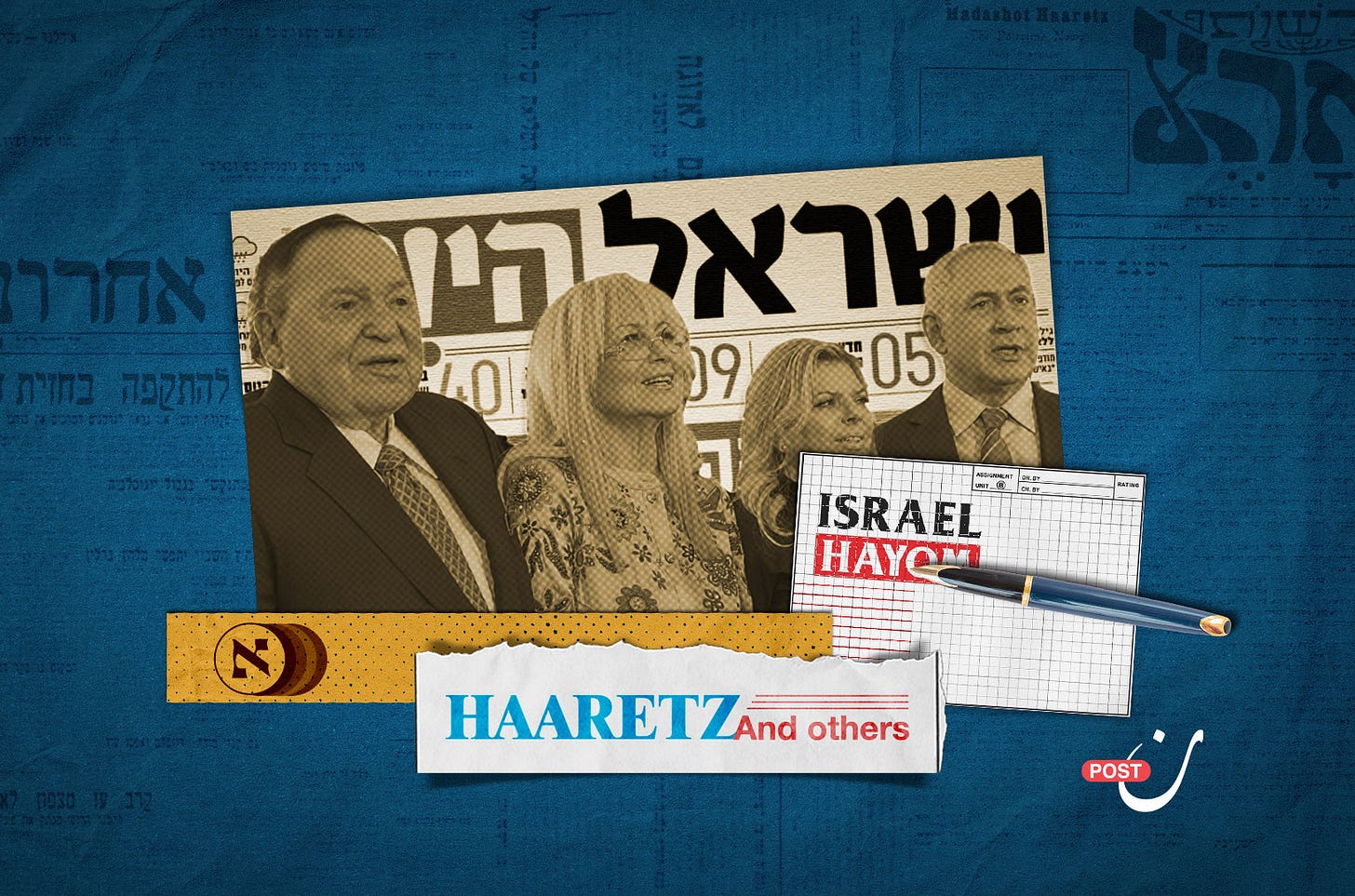
The Zionist Trinity: Miriam, Sheldon, and Bibi
Miriam Farbstein was born a year before the Nakba to Polish Jewish immigrant parents. Her family moved from Tel Aviv to Haifa during her childhood. Miriam pursued her education across various Israeli universities, earning a bachelor's degree in microbiology and genetics from the Hebrew University and later a Ph.D. with honors from Tel Aviv University.
During this period, she completed her mandatory military service, worked at the government-run Hadassah Hospital, and specialized in drug addiction treatment. Her academic journey took her to Rockefeller University in the United States, where she conducted research in the same field. In 1991, she married Sheldon Adelson.
Following their marriage, the couple channeled their efforts into supporting Zionism from Miriam's perspective as an Israeli-American. After several visits to Israel, they opened the first branch of the Adelson Clinic, specializing in drug addiction treatment, in early 1993.
As Sheldon entered the billionaire ranks through his Las Vegas Sands casino empire, he offered his hotels, services, and conference halls to the Zionist movement, the Jewish Agency, and the Israeli government.
Annual conferences for the Ministry of Diaspora Affairs, the Ministry of Foreign Affairs, and Zionist organizations were held in his hotels. Subsequently, he launched a series of philanthropic institutions and organizations aimed at influencing politicians and the public in favor of Israel.
These included the Sheldon Adelson Foundation (1993), aimed at strengthening U.S.-Israel relations and fundraising for the Zionist movement; the "Ted Ariel" Foundation, active in culture, security, and education, promoting Israel globally; and the "Birthright Israel" program, which attracted influencers, young activists, content creators, filmmakers, actors, and directors to visit and promote Israel.
The Adelson family's activities also extended to the Zionist lobby, notably the American Israel Public Affairs Committee (AIPAC), which entered a golden era thanks to their generous donations and the political use of their funds to pressure the U.S. legislative hierarchy into passing pro-Israel legislation and attacking the Boycott, Divestment, Sanctions (BDS) movement.
By the mid-1990s, specifically in 1996, the family found their political champion in Benjamin Netanyahu, the rising right-wing star who shifted the "peace process" towards absolute Israeli control and complete subjugation of the Palestinians. This led the Adelsons to financially support his campaign, culminating in his first term as Prime Minister.
For many Israelis, Netanyahu's rise to power marked a significant shift in Israeli political consciousness. He became the youngest Prime Minister in the state's history, the first born in Palestine, the initial figure to dismantle the Labor Party (formerly Mapai), and the first elected through a popular vote.
His deep-rooted connections with the United States and his excellent American accent previously qualified him as a staunch ambassador for Israel at the United Nations.
During Netanyahu's first term, his relationship with the Adelson family deepened through intimate family gatherings. Consequently, he received substantial support from the U.S. administration, even regarding his deliberate obstacles to the peace process and regional U.S. allies.
Simultaneously, the Zionist lobby increasingly celebrated him, featuring him as a regular speaker at their conferences.
In the 1999 election cycle, the Adelsons' support expanded beyond financial and political backing to full moral endorsement, especially amidst a series of scandals, infidelity cases, and corruption investigations that marred Netanyahu's premiership, leading to his defeat by Ehud Barak and a brief political hiatus.
For Sheldon and Miriam, these events represented a conspiracy between the media and politics, led by Yedioth Ahronoth, which ousted a loyal Zionist from the arena. As the Second Intifada intensified right-wing rhetoric, Ariel Sharon assumed power and appointed Netanyahu as Finance Minister.
Netanyahu later resigned in protest against the "Disengagement Plan" and Israel's withdrawal from Gaza.
Netanyahu's more hardline approach brought him back into the political spotlight, aligning him more closely with Sheldon's support for the U.S. wars in Iraq and Afghanistan. Despite his failure in the 2006 elections, he quickly unified and rejuvenated the Likud party, which had fragmented due to Ariel Sharon's departure.
From Sheldon's perspective at the time, the only obstacle facing Netanyahu was the "overly leftist" media. This realization led him, in 2007, to initiate a new form of support that transcended financial, moral, and political backing: overwhelming media support capable of building a popular base aligned with Netanyahu's rhetoric. Thus, Israel Hayom was born, introducing standards unfamiliar to the Israeli public and media.
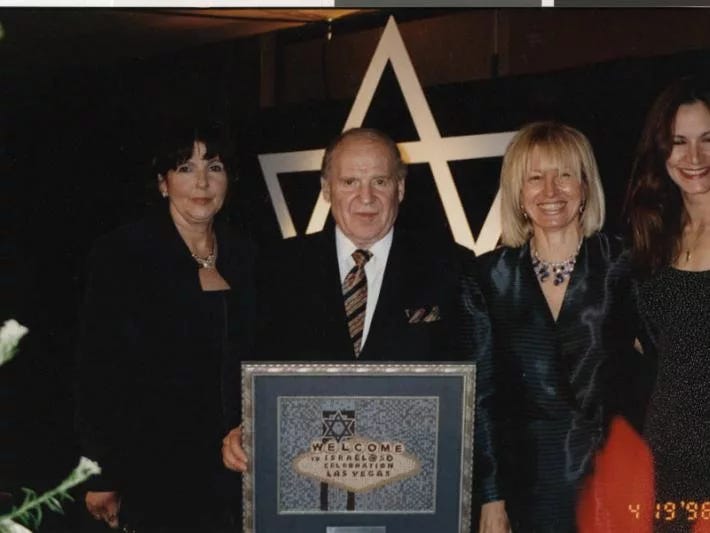
The first of these standards was the newspaper's complete free distribution, ensuring unprecedented widespread circulation within weeks and attracting advertisers and promoters. This led to a decline in revenue and influence for competing newspapers.
The second standard was its tabloid-style journalism and editorial direction. In terms of presentation, Israel Hayom emulated Western tabloid journalism, focusing on rumors, sensational news, and light articles. Editorially, it adopted an extreme right-wing approach, aligning perfectly with Netanyahu's style, who saw himself as a "modern-day Ben-Gurion."
The third standard transformed the newspaper into a primary source for international media on Israeli publications, especially by early recruitment of influential political, military, security, and diplomatic writers. In its first year, Yoaz Hendel moved from Yedioth Ahronoth to Israel Hayom, Eitan Cabel from Globes, and Dan Margalit, editor of Maariv. Legal scholar Haim Shine contributed opinion pieces that became a compass for Israeli academia.
Manufacturing Extremist Kings
The newspaper's real impact extended beyond promoting right-wing rhetoric and renewing it within Israeli society. It played a pivotal role in repeatedly elevating Netanyahu to power and establishing a media environment conducive to his authority, earning the nickname "Bibiton" (a portmanteau of "Bibi" and "newspaper") due to its consistent positive coverage of him.
During successive elections (2009, 2013, 2015, 2019, 2020, 2021), the newspaper resembled a promotional pamphlet for Netanyahu and his party. His images dominated the front page daily, accompanied by headlines lauding his strength, wisdom, and decisiveness, such as "Netanyahu warns of the Iranian threat," "Netanyahu leads in polls," and "Bibi, the King of Security."
The newspaper also established its own style of opinion polls, consistently showing Netanyahu outperforming his rivals, regardless of the poll's nature or source. It ignored surveys that didn't show his lead, selectively highlighted favorable samples and angles, and amplified supportive voices while casting doubt on the viability of opposition.
Even regarding his political opponents, the newspaper utilized its photography, advertising, production, and design departments to spotlight Netanyahu and tarnish his rivals' images. Yair Lapid was portrayed as elitist and empty, lacking an agenda and incapable of representing diverse currents. Benny Gantz was depicted as weak and incompetent, Tzipi Livni as lacking political support, and Naftali Bennett as inexperienced and inarticulate. The newspaper even targeted members of Netanyahu's own party and other right-wing ministers when necessary to bolster his image.
This approach included ignoring Netanyahu's corruption cases (Files 1000, 2000, 4000) or providing defensive coverage that emphasized the government's or his legal team's narrative, consistently portraying him as a "global statesman" or "man of impossible missions," particularly regarding his ability to "impose" normalization on various Arab and Islamic countries.
The newspaper's role in manufacturing leaders wasn't limited to Netanyahu. It also served as a launchpad for journalists transitioning into political, diplomatic, and academic arenas. Among them were Boaz Bismuth, who moved from editor-in-chief to Israeli ambassador to Bahrain; Dror Eydar, former Israeli ambassador to Italy; and Caroline Glick, who became a senior fellow at the Center for Security Policy in Washington and director of the Israeli Security Project at the David Horowitz Freedom Center.
Others included Yosef Ahimeir, who chaired the Jabotinsky Institute and joined the boards of Yad Vashem and Ariel University; and Rachel Avraham, CEO of the Dona Gracia Center and editor at the Center for Economic Peace.
This continuous export of figures, all from Likud and mostly from the right, made Israel Hayom a unique media entity in Israeli journalism. It forced traditional newspapers to alter their media patterns, reassess their economic viability, and pushed them all backward, allowing Israel Hayom to dominate the scene within just two years of its inception, capturing 31% of Israeli readers and significantly influencing public opinion and bolstering right-wing trends.
Consequently, the newspaper ended decades of media and political pluralism within Israel. Its editorial style became the red line that Israeli parties and figures found hard to ignore, with any deviation leading to systematic defamation campaigns led by the free newspaper, potent enough to topple and obliterate.
This was evident between 2009 and 2014 when the Adelson family acquired two Israeli media outlets, Makor Rishon and NRG. They also attempted to acquire Maariv after receiving attempted to acquire Maariv after receiving court approval to purchase its affiliated news portal NRG, which they rebranded as “Maariv.” However, a subsequent judicial ruling confirmed that the Maariv name was legally exclusive to the print newspaper, not the website.
This move prompted other Israeli media owners to view Israel Hayom as a destabilizing force that shattered the existing media balance. They accused the paper of being wholly biased toward the right wing—especially Netanyahu’s rhetoric—and misleading public opinion, primarily through its free-distribution model. The Adelson family reportedly invested no less than $50 million in the newspaper during its first seven years, reaping in return near-total dominance over Israeli journalism.
Israeli media reactions were not limited to rejection. Various attempts were made to undermine Israel Hayom’s growing influence. In 2014, Knesset members from both the center and right-wing opposition proposed a bill known as the “Israel Hayom Law,” aimed at banning the free distribution of daily newspapers beyond six months. The bill’s passage ultimately triggered the dissolution of the Knesset and early elections, which paved the way for Netanyahu’s political comeback.
Later that same year, a more covert attempt was made to curtail the newspaper’s reach. Arnon Mozes, the publisher of Yedioth Ahronoth, held a private conversation with Netanyahu, during which he offered to curb Israel Hayom’s circulation in exchange for more favorable, less critical coverage from his own newspaper. Though the talks yielded no deal, their leak to the judiciary provided evidence in corruption probes against Netanyahu, portraying Israel Hayom as a pressure tool and bargaining chip in his political dealings.
The final notable challenge to Israel Hayom’s dominance focused on its funding by Sheldon Adelson, an American citizen who did not reside in Israel but fully financed the pro-Netanyahu newspaper. Critics argued that this rendered the outlet immune to market forces and commercial advertising, thus undermining the principles of free and competitive media in Israel. But this line of attack also fell flat, as Adelson’s wife—later his widow—Miriam, held Israeli citizenship and remained actively involved in the paper’s operations.
Media Normalization Doesn’t Diminish Israeli Arrogance
With an unwavering far-right editorial stance, Israel Hayom has consistently reflected and fueled an Israeli public eager for conflict, willing to justify aggression against Palestinians without hesitation. Merely a year after its launch, a series of Israeli military campaigns against Gaza began: from the 2008 war, through 2014 and 2021, to the most recent war of extermination. In every instance, the newspaper’s editorial line aligned seamlessly with Netanyahu’s approach to Gaza, Smotrich’s tactics in the West Bank, and the overarching vision of a “New Zionism” dominating the Middle East.
This alignment did not arise from journalistic prowess but from ideological congruence with the Adelson family and Netanyahu’s expansionist agenda. The paper’s first editor-in-chief, Amos Regev, had virtually no editorial experience aside from his proximity to Adelson. He adopted an unapologetically right-wing tone, glorifying Netanyahu as the ideal leader capable of ensuring Israeli security and rejecting any political compromise.
Regev's tenure (2007–2017) oscillated between anti-Arab rhetoric and courting normalization advocates, all while maintaining a consistent editorial line that championed settlement expansion, tightened the siege on Gaza, and dismissed negotiations with the Palestinian Authority as weak or futile. These stances echoed Regev’s military career, which spanned the War of Attrition, the 1973 war, and the First Lebanon War.
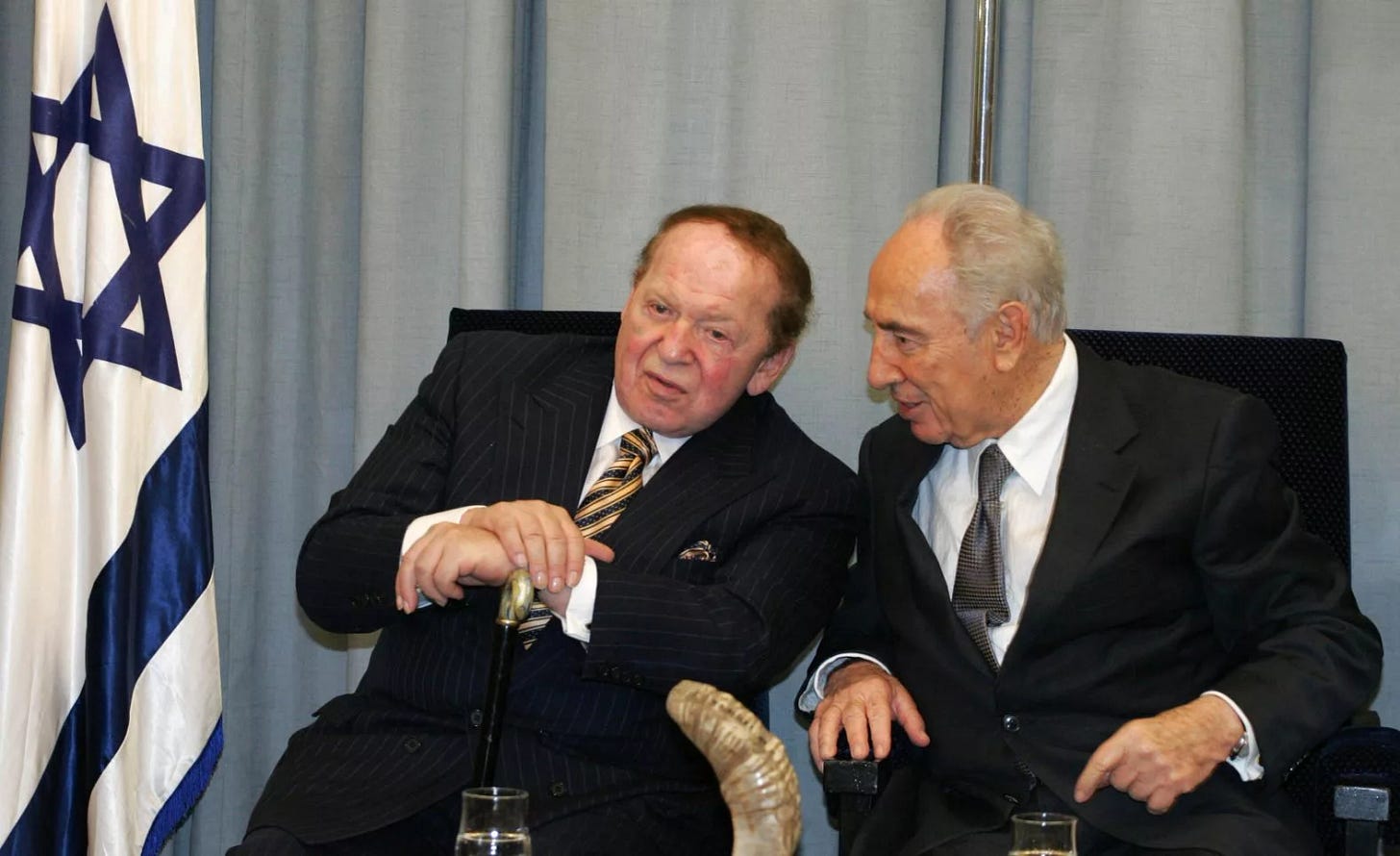
Though Regev had earlier contributed to Maariv and Yedioth Ahronoth, he truly thrived at Israel Hayom, where there were no restrictions on his anti-Palestinian or anti-left rhetoric. He is credited with shaping the paper’s editorial approach, embracing the free-distribution model, and employing tabloid techniques to broaden its reach.
To many observers, Regev symbolized Israel Hayom’s divergence from the rest of the Israeli press. Unlike traditional Israeli newspapers, whose editors commanded respect through their intellectual gravitas, international experience, and foundational roles in the Israeli state, Regev relied on unchecked financial backing, personal ties to Sheldon and Netanyahu, and an arsenal of contempt for the established media.
Expanding Into the Arab World and Inside Israel
Regev was succeeded by Boaz Bismuth, who brought diplomatic experience to the editor’s desk, having served as Israel’s ambassador to Mauritius and Mauritania. He also had international media experience as Yedioth Ahronoth’s correspondent in France and a nuanced understanding of Arab affairs, having covertly reported from Arab countries during the Arab Spring using his French passport.
This unique background proved advantageous amid the growing tide of Arab normalization and the expansion of the Abraham Accords since 2019. Bismuth expanded Israel Hayom’s influence in the Arab world via two key strategies: first, by recruiting Arab writers supportive of normalization, drawing on his Tunisian Jewish roots; and second, by platforming Palestinian citizens of Israel willing to endorse Israel’s hegemony.
Among the most prominent of these voices was Amjad Taha, a political analyst with British, Bahraini, and Emirati citizenship. After normalization with the UAE, Taha led a youth delegation to Israel and began contributing op-eds to Israel Hayom on regional and international affairs. He also heads the “British Center for Middle East Studies and Research.”
Another voice was that of Saudi-American academic Najat Al-Saeed, who joined the paper in January 2021. She teaches at Emory University in the United States and is also an assistant professor at the American University in the UAE. Her work appears not only in Israel Hayom, but also in the UAE’s Al-Ittihad newspaper and the U.S.-funded Alhurra platform.
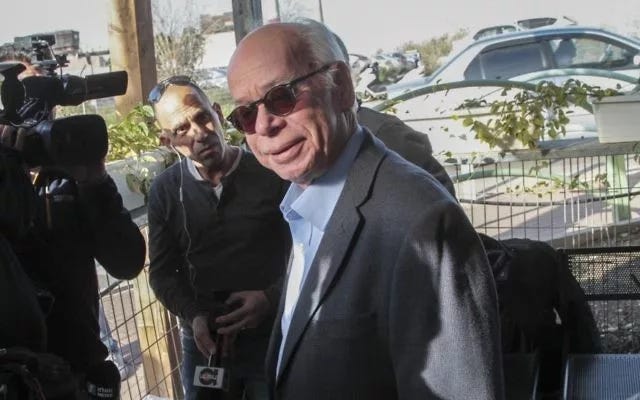
This normalization trend culminated in September 2022 with a direct media partnership between Israel Hayom and Al-Ittihad, establishing a bilingual interactive platform (Arabic and Hebrew) to promote cooperation in political, economic, environmental, and technological fields. The platform also amplifies voices advocating for deeper cultural ties between the two nations.
This embrace of Arab normalization advocates made Israel Hayom an unabashed cheerleader for all forms of normalization, and for Arab leaders driving it. The paper’s Israeli columnists openly described Mohammed bin Zayed as “a man of peace and courage,” while portraying the UAE and Bahrain as modern, progressive states, glossing over their human rights records and domestic repression. A similar but more cautious tone is applied to Saudi Arabia, pending formal normalization.
But Israel Hayom’s regional media influence is not limited to countries that have normalized ties with Israel. Its op-eds play a central role in shaping Israeli perceptions of the Arab world. Certain countries are presented as “moderate” allies against Iran; others, such as Qatar and Oman, are derided as hypocritical for supporting anti-Israel narratives. Egypt and Jordan are seen merely as security partners, and are sometimes criticized for “lax border control” or perceived inconsistencies between their official and popular rhetoric.
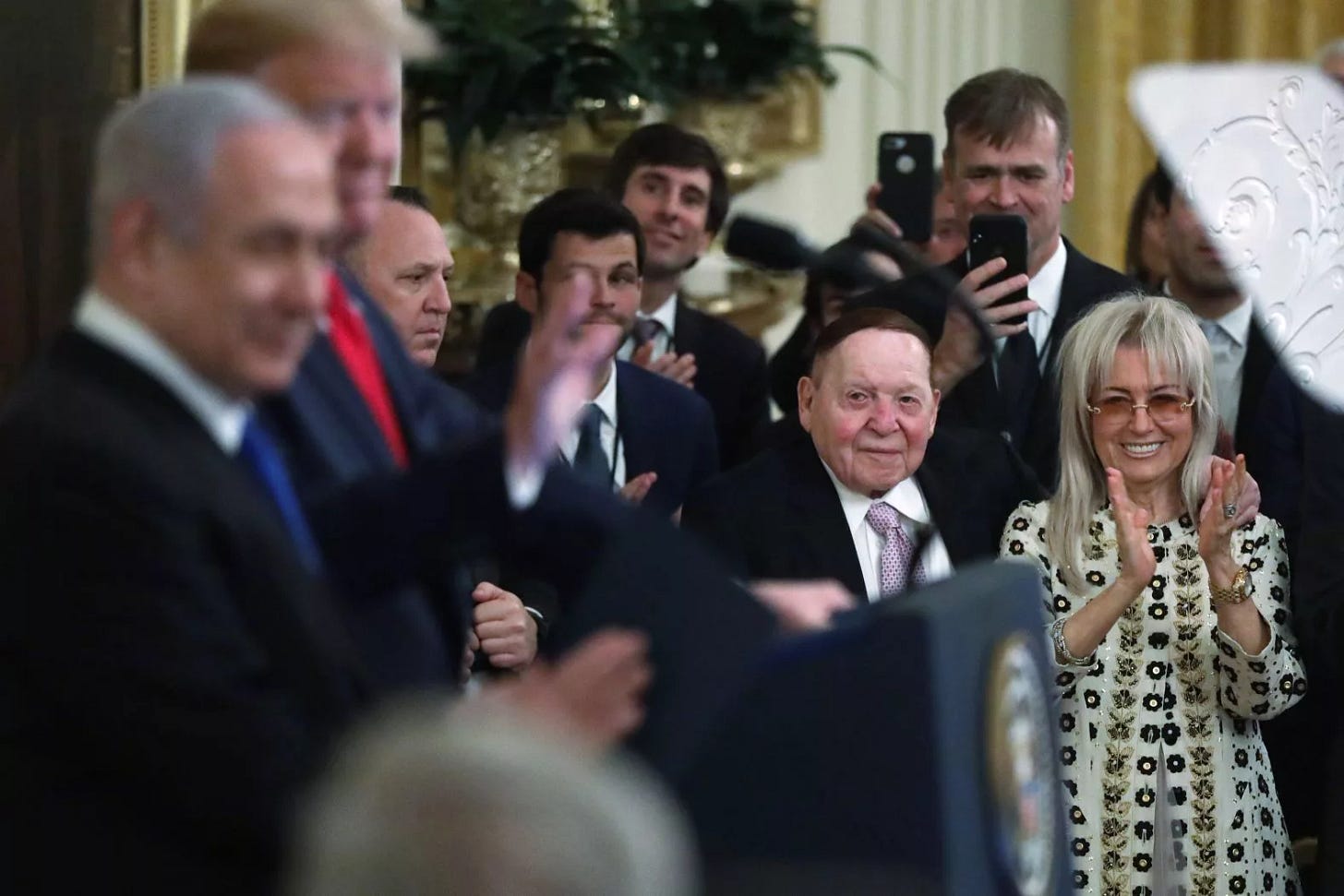
Among the Palestinian voices featured in the paper is journalist Jalal Bana, who provides Israeli readers with insights into Arab society within Israel. His editorial stance is easily traced to his past as the spokesperson for Israel’s Interior Ministry and media advisor to several Israeli ministries. He currently heads AYWA, a media consultancy serving governmental and private sectors in both Israel and the Arab world.
Bana is openly supportive of normalization and sharply critical of Arab and Palestinian leaders inside Israel who oppose it. He argues that such opposition “fuels hatred, drives away potential support for Palestinians, and obstructs their integration into Israeli society.”
Similarly aligned is Yoseph Haddad, an Arab activist from Nazareth who eagerly defends Israel on international platforms and refutes accusations of apartheid and genocide. He focuses his activism on crime and drug issues within the Arab community, drawing on his military background: he volunteered for the Israeli army and served in the Golani Brigade during the 2006 Lebanon War.
Notably, Bismuth’s short tenure as editor marked a shift in Israel Hayom’s editorial priorities, making the Arab world and Arab citizens of Israel focal points of coverage. However, this never translated into a softening of the paper’s ideological commitment to Israeli dominance. Instead, it reinforced its promotion of a strategic expansion to match Israel’s geopolitical ambitions.
In his role as head of the Knesset’s National Security Committee, Bismuth once posted a video in which he insulted both allies and adversaries:
“We wake up the King of Jordan in the middle of the night to carry out our orders. Syria should be just like Jordan—completely under our control, demilitarized. We won’t allow any power to rise there. Damascus must be fully under Israeli control. We’ll make sure it is. Syria is our bridge to the Euphrates. We’ll reach Iraq and Kurdistan in the future.”
Bismuth was followed by Omer Lachmanovich, formerly the editor of the newspaper’s weekly political supplement, who was first appointed interim editor-in-chief and confirmed in the role in February 2022. In April 2024, Matan Havilio was named editor-in-chief of Israel Hayom’s digital edition, after having led the business section at N12 and worked in public relations and media production across various Israeli outlets.
Unlike their predecessors, both Lachmanovich and Havilio bring more traditional media experience. Yet they have not deviated from the paper’s core ideology: promoting Netanyahu, and weaving a security-obsessed, pro-normalization narrative around him.
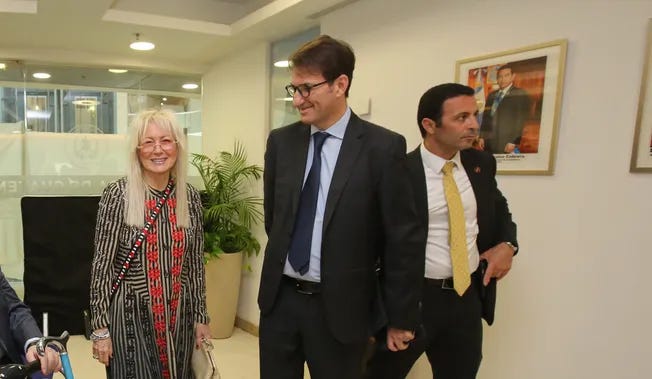
In essence, the editorial benchmark for both Israel Hayom’s editors and contributors has always been loyalty to the far-right. Whether through devotion to Netanyahu, allegiance to Likud, or ties to Israel’s security and military establishment, the newspaper has never appointed a left-leaning or centrist editor. The role has always been filled with direct endorsement from Sheldon Adelson—or his heirs—ensuring that Israel Hayom's messaging remains consistent with the triad of Netanyahu, Adelson, and the Zionist lobby.
Seeing the “Other” Through the Zionist Lens
It is hardly surprising how Israel Hayom views the “Other.” In its discourse, the Other must be either compliant (through normalization), a subordinate security partner, or, as Sheldon Adelson once described the Palestinian people, imaginary—and thus expendable. The newspaper routinely portrays all Palestinians as terrorists, whether they carry a cause, a pen, or a rifle.
Even internally, despite the occasional presence of Arab contributors, the Arab is consistently framed as an existential threat to the Jewish state. This view is aligned with the Adelson family's ideology, which recognizes no legitimate presence within historic Palestine other than that of Jews.
Through the fusion of Adelson’s vision and Israel Hayom’s rhetoric, every political move in favor of the Zionist far-right becomes justified—from their lavish donations to the U.S. Republican Party, to their vocal support for Donald Trump, including their pivotal role in relocating the U.S. Embassy to Jerusalem, withdrawing from the Iran nuclear deal, cutting funding to UNRWA, and slashing aid to the Palestinian Authority.
In this context, the newspaper’s coverage of the current war follows a familiar script. Airstrikes are always justified. Civilian casualties are downplayed. Evidence of genocide is suppressed. The word “massacre” disappears entirely from both text and imagery.
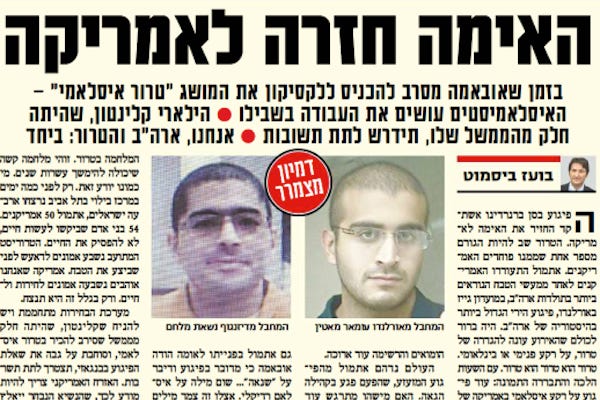
On TV screens and in the newspaper’s pages, guests—Arab, Israeli, or international—appear to demand “total victory” and the “cleansing of the land” from those they call “terrorists.” Even when cloaked in polite language, they do not hesitate to invoke the word “purification,” as if genocide were a spring-cleaning campaign.
Through such tactics, Israel Hayom has quickly become a potent tool for shaping Israeli societal and political attitudes toward settlement, annexation, and normalization. Internationally, it has promoted Israel as a peaceful nation open to both Arabs and the West. But in times of war, it strips Palestinians of their humanity and dresses up atrocities as security imperatives.
As a result, the newspaper has become a focal point for Arab media, which often recycles its stories as “security scoops” or “political exclusives” without considering the ideological context or offering critical analysis. As Mohamed Othman Hassan, journalism professor at Alexandria’s Higher Institute, put it:
“Arab media is interested in what Israel Hayom says, but not in who is saying it or why. There’s no discourse analysis, no investigation of its alignment with far-right propaganda.”
In Israel, the left and opposition parties use the newspaper to test policies and public reactions before implementation, shaping public opinion accordingly. This includes coverage of Netanyahu’s rumored withdrawals from politics, budget approvals, and war decisions. Even among those who dislike the paper’s tabloid style, Israel Hayom effectively domesticates the public, monitoring and adjusting to their pulse in real time.
In the Arab world, too many politicians, analysts, and media figures still treat every “yellow” tabloid headline as gold, every “exclusive” as truth—even when it comes from Israel Hayom’s nightclub of a newsroom, written by an IDF officer with a journalist’s badge.





